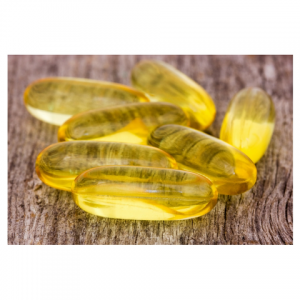The life of a new mom is busier than any of us dreamed it would be. We step onto a steep learning curve and the stakes are high! It’s hard to even consider our own health needs, but the more we let our health slide the harder it is to be an effective parent.
 Pregnancy and the first 12 months of mothering are extremely hard on the body. Here are 4 simple strategies to support your health postpartum.
Pregnancy and the first 12 months of mothering are extremely hard on the body. Here are 4 simple strategies to support your health postpartum.
1. Find time to eat real food. Easier said than done, I know, but nutritional deficits and dehydration brought about by your pregnancy and breastfeeding can be contributing to moodiness, insomnia, baby blues, weight retention, and fatigue.
The healthier your diet, the faster and more effectively you will rebound, and the happier you will feel.
Particularly helpful:
- Whole foods rich in zinc, vitamin D, calcium, magnesium, and omega 3 fatty acids will help your mood and sleep. Some good options are: shellfish and fish, chicken, beef, pork, organ meat, nuts, yogurt (if tolerated)
- Adequate protein, fiber and minerals will help stabilize your blood sugar. Choose fresh fruits and vegetables, whole grains, eggs, legumes and quality meats.
- Ensure quality fats. Include coconut oil, cold pressed olive oil, red palm oil, cultured butter, and flax oil.
Some strategies:
- Make large batches of muffins and soup for the freezer.
- Call on friends and parents for help – ask them to bring you freezer meals and snacks.
- If you are going to eat out or order in find fresh, real, unprocessed options – if there’s any time in life when it’s worth spending the extra money, it’s now.
- Cook in batches – cook enough chicken thighs for 4 days, for example. Keep them in the fridge so you can easily grab them for salads or a snack (use the thighs instead of the breast as they are higher in iron).
- Keep a bottle of water or herbal tea with you at all time. Sip throughout the day. Also, if you can, avoid diuretics like coffee.
2. Take a multi-strain probiotic supplement. The stress of birth, along with any medication you might have taken before, during or after labour can really throw off your gut ecosystem leading to digestive difficulty, mood instability and poor sleep. A good multi-strain probiotic supplement can help rebalance your gut bacteria and can reduce the chance of atopic conditions like eczema and allergy in your baby.
3. Take a purified fish oil supplement with at least 2400mg of DHA if you are breastfeeding, 1200mg if you are not. Yes, that’s a lot! It’s enough to replenish your own stores and fortify your breastmilk. Essential fatty acids, particularly DHA are important for your baby’s brain and immune system development, can help improve your mood and sleep, and can help reduce irritation in your baby’s skin.
supplement with at least 2400mg of DHA if you are breastfeeding, 1200mg if you are not. Yes, that’s a lot! It’s enough to replenish your own stores and fortify your breastmilk. Essential fatty acids, particularly DHA are important for your baby’s brain and immune system development, can help improve your mood and sleep, and can help reduce irritation in your baby’s skin.
4. Take a B-stress complex and eat foods high in B vitamins like leafy greens, whole grains, muscle and organ meat, mushrooms, fish, beans, nuts and seeds. This will help your adrenal recovery – a process that can take about two years after childbirth. You are in a stressful time of life… no getting around it! Choose a supplement without adaptogen herbs for now (like rhodiola and ashwaganda), as few have been studied for safety while breastfeeding.
While it is our instinct to take care of our babies before considering our own needs, these simple yet effective ways to nourish yourself postpartum will keep you from sliding too far into deficit. If you find yourself surviving on power bars and cereal, it’s time to make a shift. Visit my website for more information about nutrition and postpartum recovery along with support for feeding your family.
 Jess Sherman is a Registered Holistic Nutritionist who helps busy mothers simplify their lives and raise healthy kids by arming them with a powerful understanding of nutrition and the body.
Jess Sherman is a Registered Holistic Nutritionist who helps busy mothers simplify their lives and raise healthy kids by arming them with a powerful understanding of nutrition and the body.
Parents can join her virtual community to learn about the core dietary strategies that support physical and mental resilience at www.jesssherman.com and on Facebook at https://www.facebook.com/groups/raisingresilience/.
Jess offers dietary support for symptoms and conditions common to infants, children and mothers including digestive disorders, food intolerance and allergy, picky eating, ADD/ADHD, Autism Spectrum Disorders, anxiety, eating disorders, eczema, fatigue and overwhelm, and postpartum adjustment struggles.

Leave a Reply